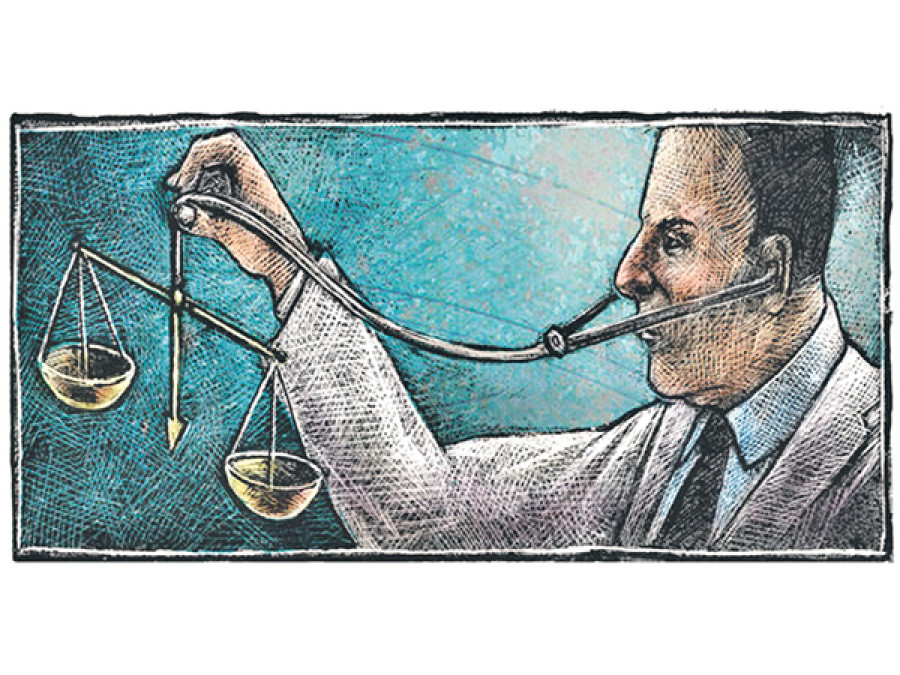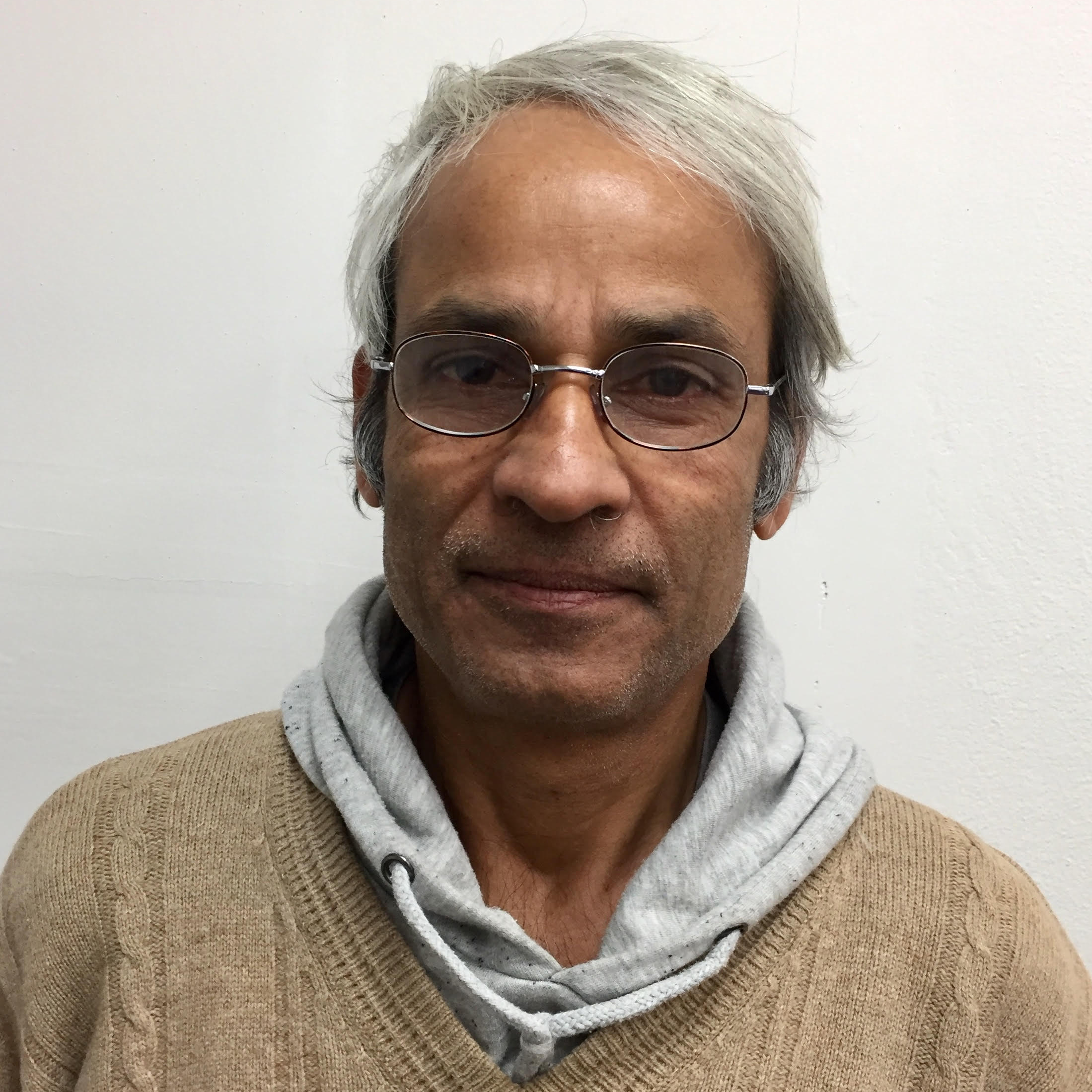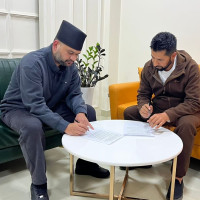Opinion
The rot within
Private medical colleges have been wrongly thought to be cost-effective and efficient
Jagannath Adhikari
The Mathema Report on medical education received instantaneous public support mainly because it documented the malpractices of private medical colleges. The three main malpractices that people have become fed up with are high tuition fees, poor education and training, and excessive politicisation. Students who have studied or are studying in private medical colleges have also been exposing these wrongdoings from time to time.
Personally, I am not against private educational system. But there are different types of private systems, especially when it comes to education, and that the government exercises control in every private system. But this control depends on the nature of the private education institution.
In the case of medical education, the government plays a central role in many countries, and a great number of medical colleges are either government-funded or public colleges. Private colleges too receive government funding, and their owners or managers are instructed to keep tuition fees at a certain level and maintain the quality. There are also non-profit private medical colleges which can accept financial donations from the public, individuals and private companies to subsidise the education they provide. In fact, the best-known medical colleges in the world belong to this category. There are also autonomous and profit-making medical colleges, but the government has control over their fees and the quality of service.
Government oversight
In a country like Nepal where basic health services are still poor except in major metropolises like Kathmandu and Pokhara, the government should spend more on both health education and health services so that they are easily available to the majority. Even in urban areas where these services are physically available, they are inaccessible to many because of the high cost. As Nepal does not have a free medical system—through insurance or other forms of support—it is imperative that it invests more on medical education and hospitals in different locations in the country, and implements a system that is capable of retaining the medical professionals.
The main concern of Dr Govinda KC, who frequently staged a fast unto death leading to the formation of the Mathema Commission, is the provision of cheap and quality health education and services all over the country, especially in rural and remote parts. This provision also means, as Dr KC says, fulfilling the government’s obligation to the citizens of the country of respecting the constitutional provision of the right to life. If Dr KC’s concerns are to be addressed, the government must allocate more resources to open colleges and teaching hospitals in rural parts of the country and in every development region. If the government has the will, I do not think that there will be any resource constraint to do so. It is just a matter of rearranging priorities.
Having said that, I am not implying that the private sector’s involvement is not necessary. With the increase in population and demand for medical education, the private sector does have a role to play in boosting the supply of medical professionals in the country. Similarly, the private sector can play an important role in providing medical services, especially in specialised medical fields, if it is indeed serious about community welfare. For this to happen, government agencies should act responsibly, especially when performing its role in licensing, fixing tuition fees and monitoring the quality of training and other programmes. Sadly, the government has not performed these tasks responsibly, resulting in the problems that have forced Dr KC to go on hunger strikes repeatedly.
Private problems
In recent times, the media has revealed many cases where the owners or managers of private medical college have paid millions of rupees as bribe to responsible authorities whether in the government or the judiciary. It is very clear that if the profits were not excessively high, these businesspersons would not have paid so much money as bribe to those responsible for protecting the public interest. So, whatever profits these businesspersons have made, they have been made over the lives of people.
It is also puzzling that current events belie the assumptions supporting the involvement of the private sector in the medical field. It is generally assumed that the private sector is cost-effective and efficient, and that it has no red tape as in the government bureaucracy. Students in such private schools are thought to have more rigorous training and one-to-one attention from the professors and access to state-of-the-art technology. It is because of this possibility that some of the best medical colleges are private. But, in our case, we see just the opposite as there is a great deal of corruption. The poor quality of training is an open secret now, and students lack access to basic equipment and facilities. The syndication of private colleges and their access to people in high places means that they are able to work against the established norms, and even against the basic idea of a free market.
It is high time that the government thought differently about its role in medical education and made private institutions work better for the welfare of the community at large. For this, the government needs to regularly monitor and assess the sufficiency of public and private medical colleges, the quality of their training and the contribution of medical graduates to society. As medical graduates are produced at high cost, the government has a responsibility to see how and where the fees they pay have been used. This will help plan medical education. The government should also encourage non-profit private institutions which can be supported partly by public funding and philanthropists so that the costs of education and health services are reduced.
Dr KC’s commitment to improving medical education and health services is for all of us. So we all need to support the full implementation of the Mathema Report. It is only this way that the public can repay his dedication.
Adhikari is a social scientist




 16.12°C Kathmandu
16.12°C Kathmandu









%20(1).jpg&w=300&height=200)

